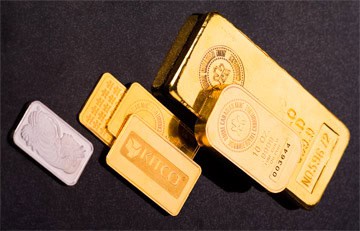
Silver is likely to reach $18.50 an ounce in third quarter of 2018, and maybe even hit 2016 highs of $21.50 an ounce by the four quarter, based on a combination of technical, sentiment, seasonal, and fundamental factors.
The white metal is undervalued at current price levels and is expected to become one of the best performing assets, making it an ideal contrarian investment, according to Florian Grummes, analyst at Midas Touch Consulting in a recent report. He added that despite gold’s recent plunge, silver still has a lot of room to catch up with the yellow metal.
In his latest report, Grummes said, “Especially as I expect a breakout in gold above 1,350 USD, silver has a lot of room to catch up with gold. The gold/silver ratiostill trades just shy below 80 and remains far away from its long-term mean of around 65-67.”
Grummes said that extremely low volatility in silver prices indicates a “market where neither speculation nor mainstream interest is apparent.”
Silver has been trading sideways the past three months. Technical analysis indicates that it has been trading in the narrowest range since 2002 when looking at Bollinger Bands, which could indicate a return of volatility soon, said Grummes.
“Arguably this means that sooner or later volatility will come back into the silver market and we will likely witness a strong move,” the report said.
Looking at traders’ sentiment, Grummes sees the latest Commitment of Traders Report numbers as bullish. As of May 29, the cumulated commercial short positions was 35,297 contracts when silver closed at $16.36 an ounce.
“Usually a perfect contrarian setup is found when commercial hedgers hold less than 10,000 short contracts in the silver futures market. With the current 35,297 short contracts, a final sell off in silver is still possible in the coming weeks,” he said.
Grummes added that historically, summer period has played in silver’s favor. “Usually during the extremely weak month of June silver often experiences dramatic sell-offs followed by a powerful surge into the summer months between July and September,” according to the report.
On the fundamentals side, Grummes anticipates that silver’s long-term price growth will be driven by industrial demand, as retail consumption, particularly in coins and bars, has shown steady weakness since 2017.
“At least increased consumption from industrial production, jewelry production and silverware offset an even stronger decline in demand,” he said.
Silver consumption of bars and coins fell to a 10-year low in 2017, contributing to a 5% decline in overall consumption last year. While global silver production in 2017 also fell by 2.7%, the larger relative fall in consumption may be the reason for flat lining silver prices form a purely demand-supply perspective.
